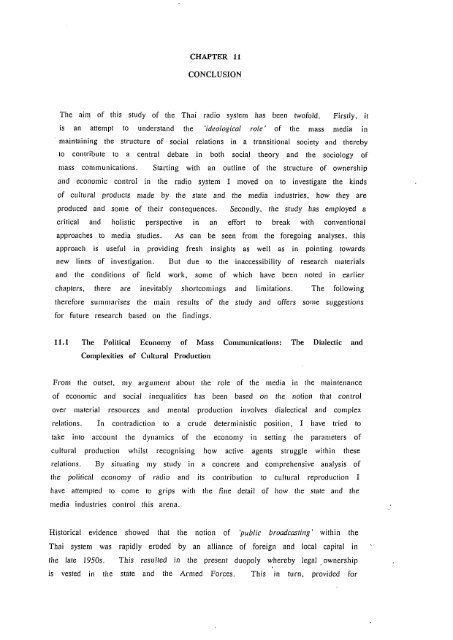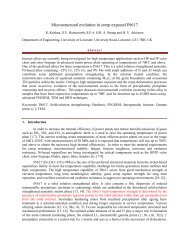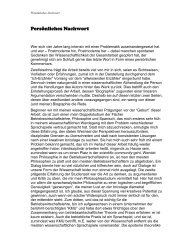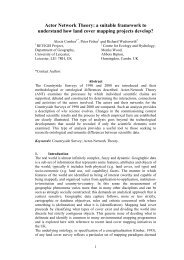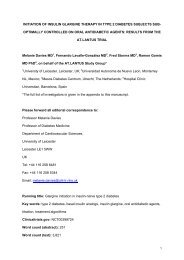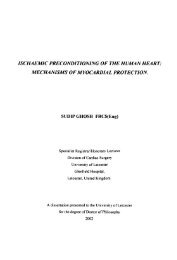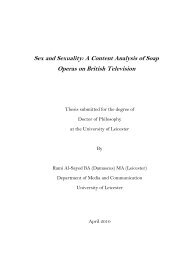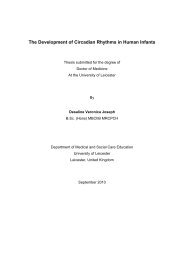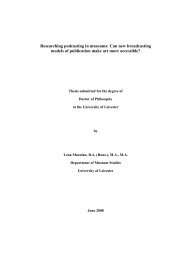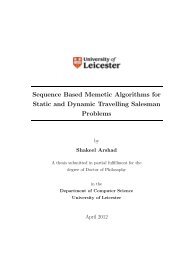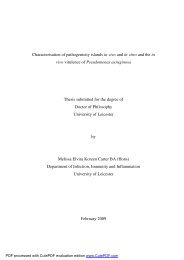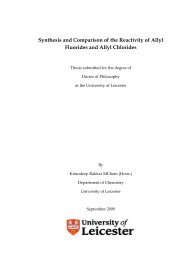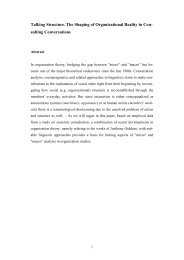iieiiei1eWrkers - Leicester Research Archive - University of Leicester
iieiiei1eWrkers - Leicester Research Archive - University of Leicester
iieiiei1eWrkers - Leicester Research Archive - University of Leicester
You also want an ePaper? Increase the reach of your titles
YUMPU automatically turns print PDFs into web optimized ePapers that Google loves.
CHAPTER 11<br />
CONCLUSION<br />
The aim <strong>of</strong> this study <strong>of</strong> the Thai radio system has been tw<strong>of</strong>old. Firstly, it<br />
is an attempt to understand the 'ideological role' <strong>of</strong> the mass media in<br />
maintaining the structure <strong>of</strong> social relations in a transitional society and thereby<br />
to contribute to a central debate in both social theory and the sociology <strong>of</strong><br />
mass communications. Starting with an outline <strong>of</strong> the structure <strong>of</strong> ownership<br />
and economic control in the radio system I moved on to investigate the kinds<br />
<strong>of</strong> cultural products made by the state and the media industries, how they are<br />
produced and some <strong>of</strong> their consequences. Secondly, the study has employed a<br />
critical and holistic perspective in an effort to break with conventional<br />
approaches to media studies. As can be seen from the foregoing analyses. this<br />
approach is useful in providing fresh insights as well as in pointing towards<br />
new lines <strong>of</strong> investigation. But due to the inaccessibility <strong>of</strong> research materials<br />
and the conditions <strong>of</strong> field work, some <strong>of</strong> which have been noted in earlier<br />
chapters, there are inevitably shortcomings and limitations. The following<br />
therefore suinniarises the main results <strong>of</strong> the study and <strong>of</strong>fers some suggestions<br />
for future research based on the findings.<br />
11.1 The Political Economy <strong>of</strong> Mass Communications: The Dialectic and<br />
Complexities <strong>of</strong> Cultural Production<br />
From the outset, my argument about the role <strong>of</strong> the media in the maintenance<br />
<strong>of</strong> economic and social inequalities has been based on the notion that control<br />
over material resources and mental production involves dialectical and complex<br />
relations. In contradiction to a crude deterministic position, I have tried to<br />
take into account the dynamics <strong>of</strong> the economy in setting the parameters <strong>of</strong><br />
cultural production whilst recognising how active agents struggle within these<br />
relations. By situating my study in a concrete and comprehensive analysis <strong>of</strong><br />
the political economy <strong>of</strong> radio and its contribution to cultural reproduction I<br />
have attempted to come to grips with the fine detail <strong>of</strong> how the state and the<br />
media industries control this arena.<br />
Historical evidence showed that the notion <strong>of</strong> 'public broadcasting' within the<br />
Thai system was rapidly eroded by an alliance <strong>of</strong> foreign and local capital in<br />
the late 1950s. This resulted in the present duopoly whereby legal ownership<br />
is vested in the state and the Armed Forces. This in turn, provided for


